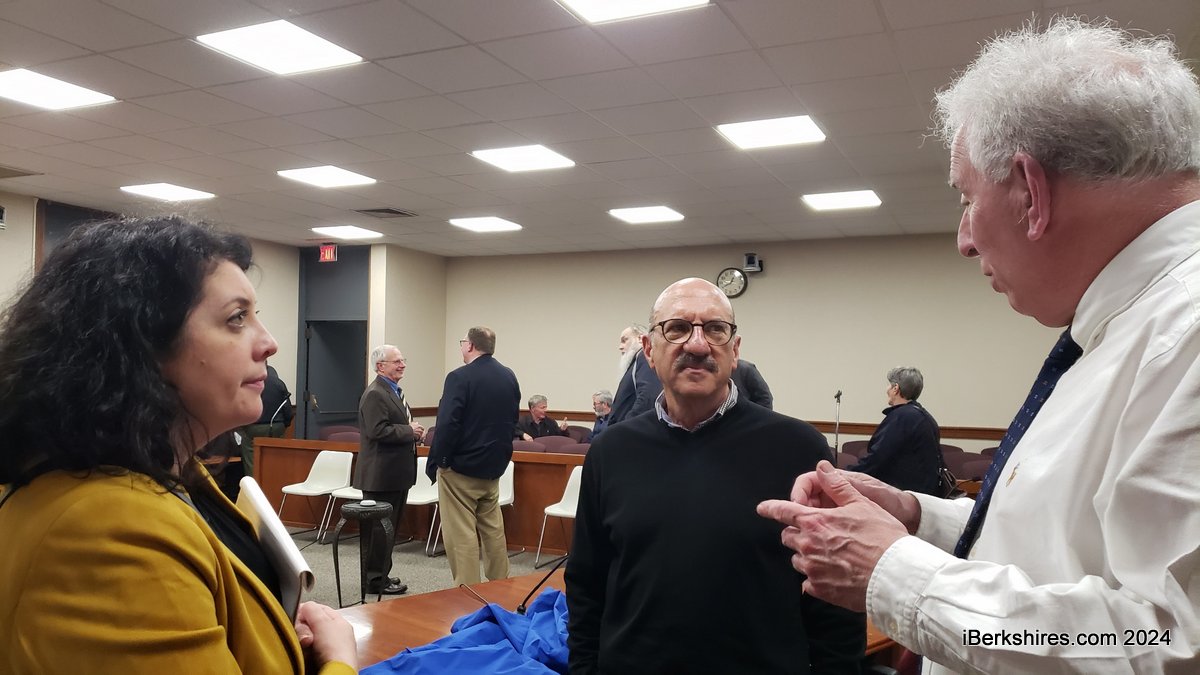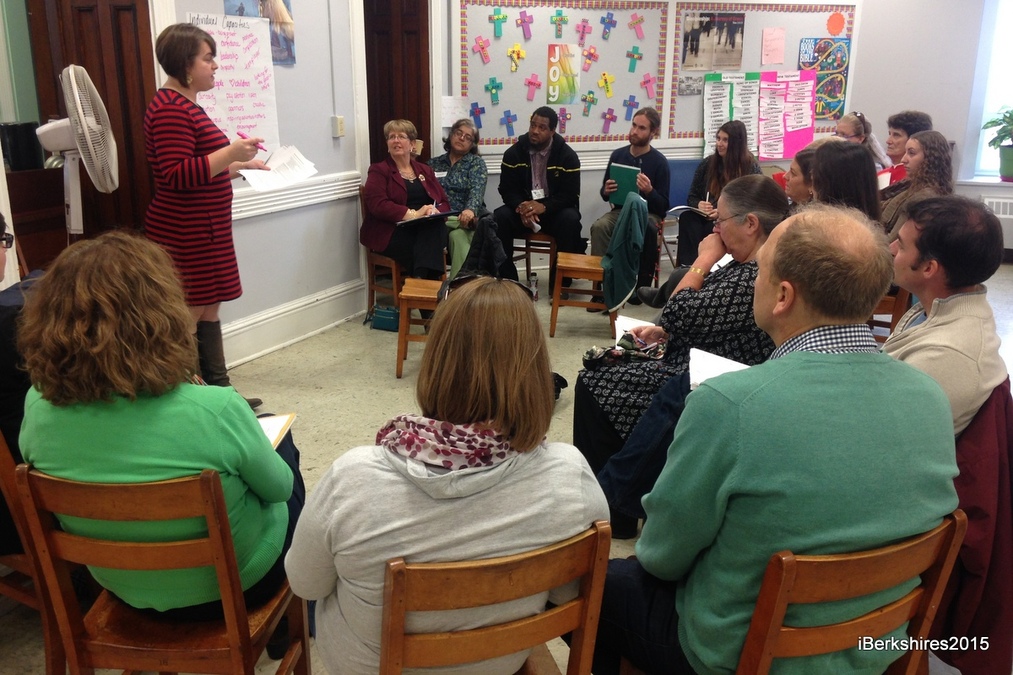
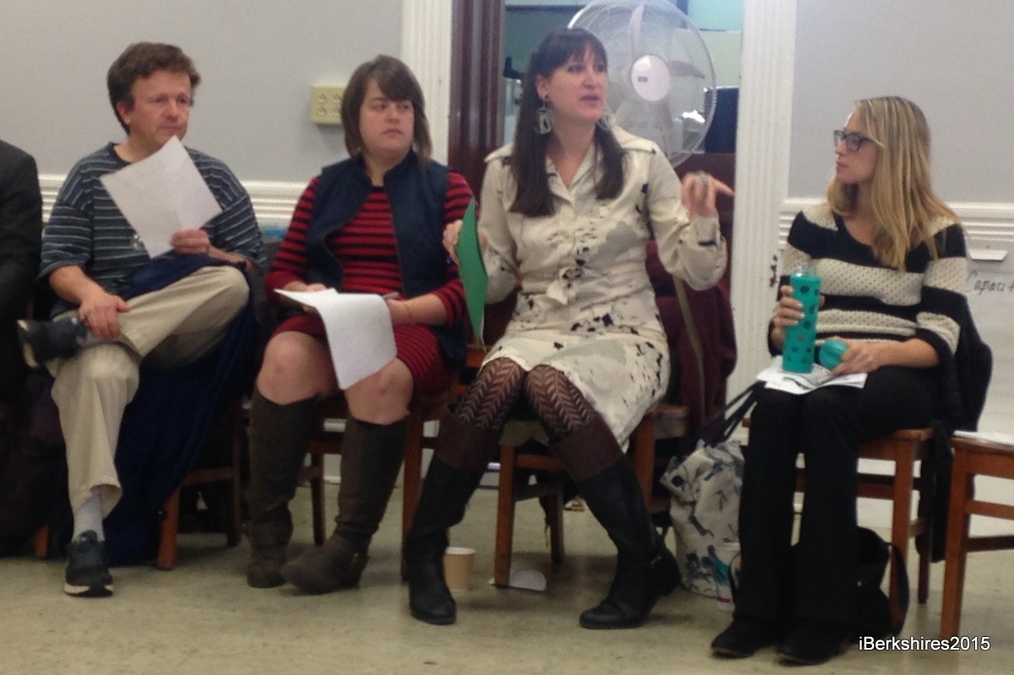
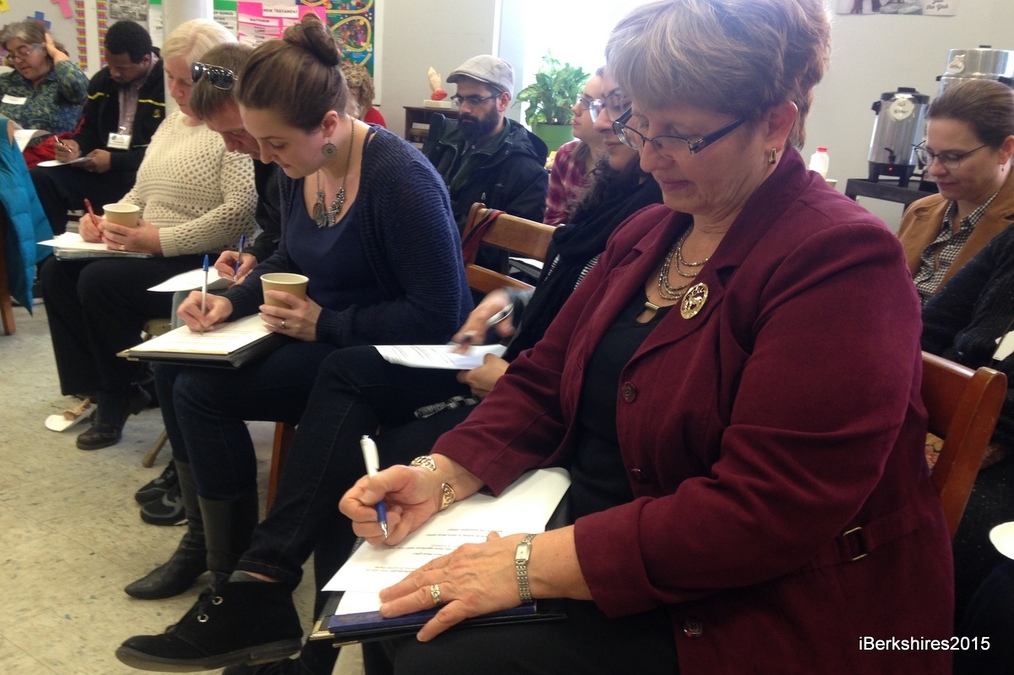
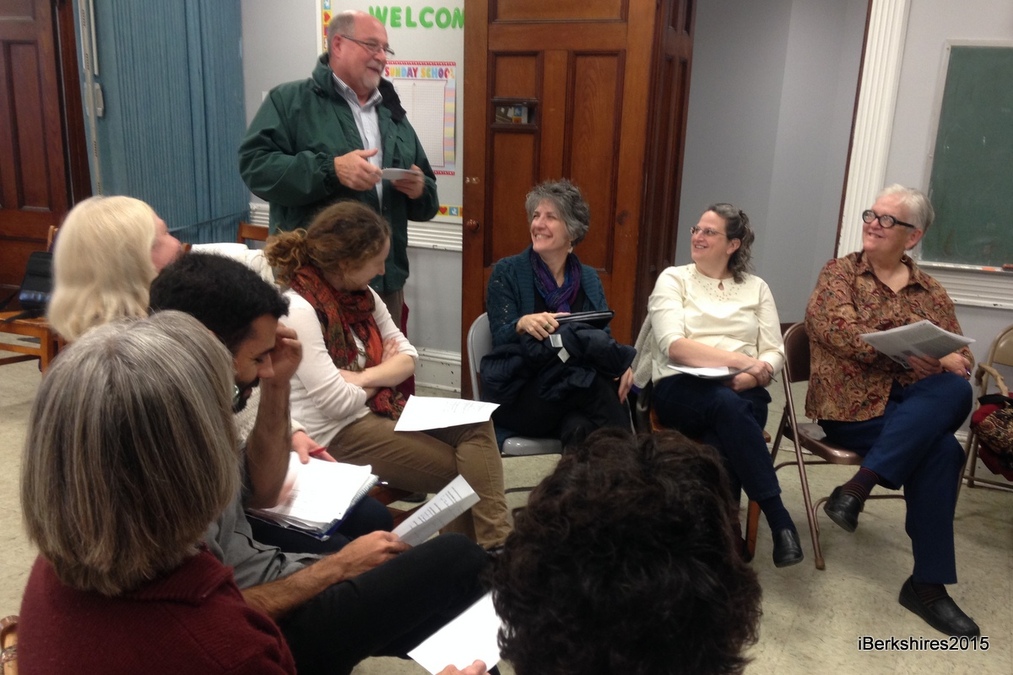
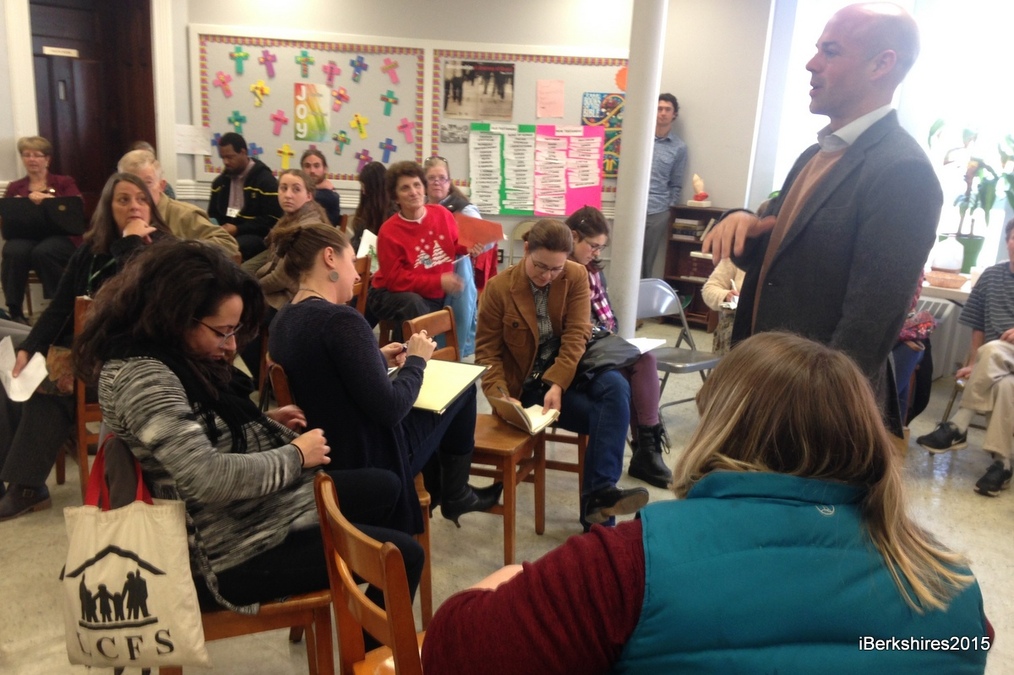
Coalition Meeting Focuses on Region's Assets
NORTH ADAMS, Mass. — Charles Dickens is a household name this time of year, having given us the perennial holiday favorite "A Christmas Carol" that can bring joy to the hearts of even the most Scrooge-like among us.
Dickens also is famous for having once said: "Reflect upon your present blessings, of which every man has plenty; not on your past misfortunes of which all men have some."
Dickens likely would have been proud of the recent monthly forum of the Northern Berkshire Community Coalition, then. Instead of coming into the meeting having identified a problem, the Coalition came into the meeting prepared to identify what North County has going for it.
Annie Rodgers, the coordinator of the Coalition's Northern Berkshire Neighbors program, led the Dec. 11 meeting in a task called "community asset mapping." Community asset mapping, developed by John Kretzmann and John McKnight of the Asset-Based Community Development Institute at Northwestern University in Evanston, Ill., is described as "a positive approach to building strong communities" and "the process of intentionally identifying the human, material, financial, entrepreneurial and other resources in a community."
"Everyone in this room is Northern Berkshires' greatest asset, and we need to start acting like it," Rodgers told the room of about 50 representatives of local human service and religious organizations as well as other interested parties. "We're going to be looking at our gifts, our skills, our passions.
"We have an opportunity to get to know people on a different level."
Rodgers explained that the audience would be splitting into breakout groups to focus on three particular areas of interest: parent/child engagement, health and substance abuse. Each group would identify the capacity of individuals, including gifts and skills; local private, public and nonprofit institutions; and physical assets, among other things.
"This is going to be the foundation for all of our future forums," Rodgers said. "Today isn't a day to say why these issues exist. We're just identifying the things we think are wonderful."
In the group focusing on parent/child engagement, led by Coalition staffer Amber Besaw, participants identified such personal gifts and skills as compassion, curiosity and humor. In brainstorming who are the community's strangers — defined as people not engaged in the community or not understood by the community at large - the group thought of people such as grandparents, children and teenagers themselves, and even teachers and fathers. They listed positive local associations and institutions as including the United Neighborhood Organization and local youth sports teams as well as the region's colleges, art museums and churches. And they listed the area's beautiful scenery, including Mount Greylock, and historical buildings as physical assets the community has.
Besaw shared the finding she found most interesting.
"When we started talking about strangers who are not in the conversation, we came up with a great list of people we really can engage and build a better foundation in our community ... wide variety of people," she said.
In the group focusing on substance abuse, led by Coalition staffer Wendy Penner, participants identified public speaking and collaboration as skills, active addicts and veterans as strangers, chambers of commerce and Alcoholic Anonymous groups as associations of citizens, the faith community and agencies like BFAIR as institutions, and lakes, parks and yoga studios as physical assets.
Penner then shared her group's most interesting points of discussion.
"I found it really wonderful and appropriate that compassion and empathy were some of the biggest assets that individuals in our group brought, and that was really exciting, because people in recovery need that," she said.
Finally, NBCC Executive Director Adams Hinds led the Health breakout group, and they identified skills such as storytelling and organization, strangers such as as people with disabilities, poor people, and bikers and walkers, institutions such as the Berkshire Regional Transit Authority, fars and libraries, and media outlets, associations of citizens such as the YMCA, faith communities and artists, and physical assets such as baseball field, old mill buildings and the Hoosic River.
Hinds summed up his group's discussion in broader terms than specific examples of ideas.
"There is an untapped power that is represented in these lists," he said. "This is giving me shivers just looking at the potential we have come up with in the last 45 minutes."
Hinds also let the audience know that the results of this asset mapping meeting were going to be displayed in a unique way: as "word clouds" on the billboard on the corner of River and Houghton streets across from the UNO Community Center on space donated by Mass MoCA.
"We're going to take all these points and put them into word clouds," he said, adding that there will be a tagline saying something to the effect of "you are the center of the community. It's a really fun outcome of this."
More importantly, though, the ideas brainstormed at this meeting will help identify solutions to problems, Rodgers said.
"What we did today is really going to have an impace on our community moving forward," she said.
Tags: community forum, NBCC,

